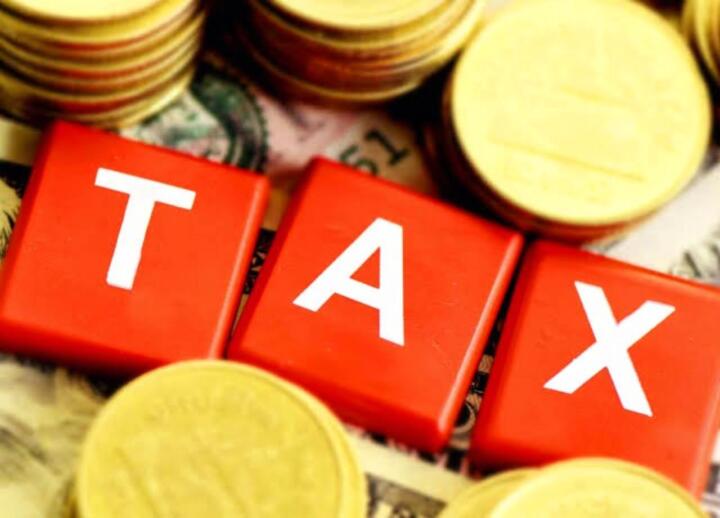The Federal Government has officially scrapped the planned 5 percent excise duty on telecommunications services, offering much-needed relief to millions of phone and internet users across Nigeria. The decision, which follows months of consultations and pushback from industry stakeholders, has been widely welcomed by consumers, service providers, and advocacy groups who feared that the tax would further burden households already struggling with rising costs of living.
The telecoms tax was first introduced in 2022 as part of broader revenue generation measures but was met with stiff resistance from the Nigerian Communications Commission (NCC), the Ministry of Communications, and telecom operators. Industry leaders argued that imposing a levy on calls, data, and messaging services would stifle growth in the sector, slow down digital inclusion, and hurt small businesses that rely heavily on affordable internet access.

Announcing the decision to scrap the duty, Finance Minister Wale Edun explained that the government reviewed the measure in light of its potential economic implications. According to him, sustaining Nigeria’s digital economy agenda and promoting financial inclusion outweigh the projected revenue gains from the telecoms tax. “Our government is focused on productivity-led growth, not taxation that imposes more hardship on Nigerians. Removing the 5 percent levy is in line with this vision and will support broader economic participation,” he said.
Telecoms operators under the Association of Licensed Telecommunications Operators of Nigeria (ALTON) described the move as a victory for consumers and a demonstration of government’s responsiveness to stakeholder concerns. ALTON Chairman, Gbenga Adebayo, noted that the removal of the tax would strengthen investor confidence and allow operators to channel resources into network expansion, technology upgrades, and rural connectivity projects.
Subscribers, for their part, have expressed relief at the development. In recent years, the cost of data and airtime has steadily increased, partly due to foreign exchange pressures, inflation, and the high cost of diesel powering telecom towers. Many Nigerians feared that adding a new tax on top of these challenges would make communication services unaffordable for low-income households and widen the digital divide. “This is one of the best decisions the government has taken recently. With the rising cost of food and transportation, people cannot afford additional charges on calls and data. It shows they are listening to the people,” said Lagos-based student, Chiamaka Okoye.
The Nigerian telecoms sector is one of the country’s most vibrant industries, contributing over 14 percent to Gross Domestic Product (GDP) and creating more than half a million jobs directly and indirectly. It has also been a critical driver of financial inclusion, with mobile money, fintech apps, and online platforms expanding access to banking services for millions of Nigerians. Experts say the removal of the 5 percent excise duty aligns with broader policy efforts to support digital transformation and position Nigeria as Africa’s technology hub.
However, the government’s decision raises questions about how it will bridge the revenue gap. Nigeria faces significant fiscal challenges, including a high debt burden and heavy spending obligations. The telecoms levy was projected to generate tens of billions of naira annually. With the tax now scrapped, policymakers will need to explore alternative revenue sources, particularly those that do not hurt consumer welfare or stifle business growth.
Industry analysts suggest that the government could focus on improving tax compliance and efficiency, especially in sectors with large informal activities. Others point to the need for policies that expand the tax net without overburdening already compliant sectors like telecommunications. “The lesson here is that not all taxes are productive. The telecoms duty would have created distortions. What we need is smart taxation that stimulates, not inhibits, economic activity,” said economist Dr. Tunde Bakare.
The development also reflects a broader rethink of taxation policy under the current administration. In recent months, the Nigeria Economic Summit Group (NESG) and other stakeholders have urged the government to anchor economic growth on productivity and investment rather than aggressive taxation. Scrapping the telecom tax signals alignment with that advice and may set the tone for future fiscal reforms.
For telecom operators, the next challenge will be delivering better quality services and expanding coverage, especially in underserved areas. With consumers spared from additional charges, expectations are rising for operators to reinvest savings into improving network reliability, reducing dropped calls, and enhancing broadband penetration. The NCC has also reiterated its commitment to ensure operators live up to their obligations while protecting consumer rights.
In the short term, the scrapping of the 5 percent excise duty is expected to stimulate higher usage of voice and data services, as affordability improves. Over the longer term, it could support Nigeria’s ambition to achieve 70 percent broadband penetration by 2027 and strengthen the foundation for a digital economy that drives inclusive growth.
As the news spreads, telecom users nationwide are celebrating what many see as a rare victory for consumers in a challenging economic climate. Whether in cities or rural communities, the message is the same: affordable communication is not a luxury but a necessity in today’s economy. By removing the levy, the Federal Government has not only eased pressure on household budgets but also reaffirmed its commitment to a more inclusive digital future.
Support InfoStride News' Credible Journalism: Only credible journalism can guarantee a fair, accountable and transparent society, including democracy and government. It involves a lot of efforts and money. We need your support. Click here to Donate
